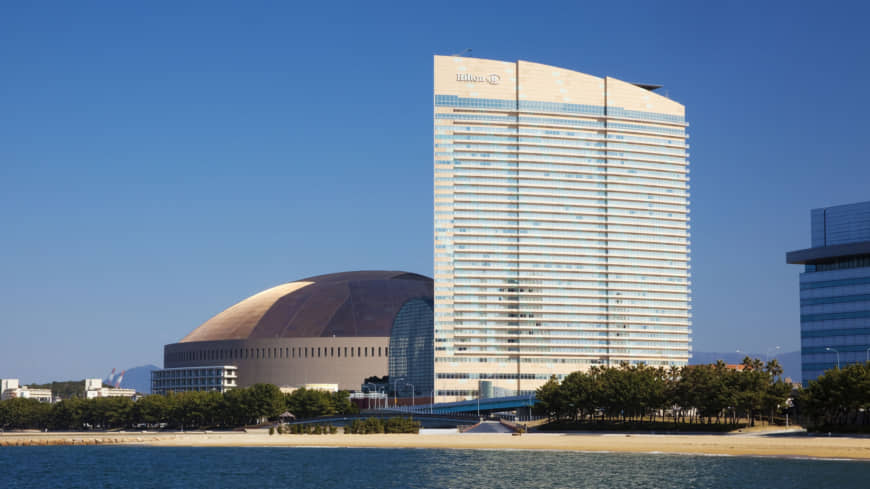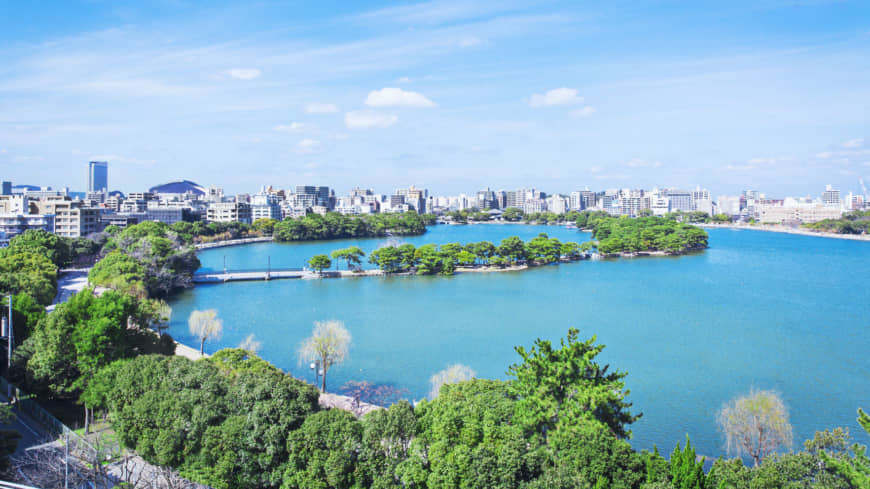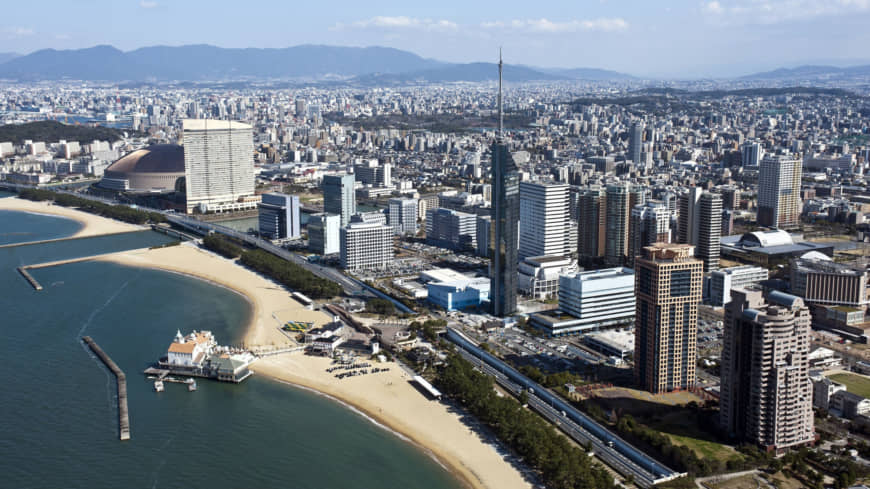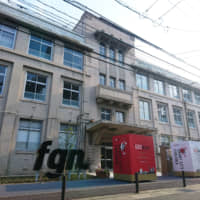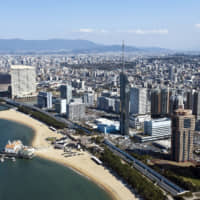Compact and efficient, the energetic city of Fukuoka is an ideal venue to host this weekend’s two-day G20 Finance Ministers and Central Bank Governors Meeting, with the vibrant metropolis slated to also welcome major events such as some 2019 Rugby World Cup matches, as well as the 2021 World Aquatics Championships.
In recent years, Fukuoka has also garnered much attention due to government initiatives from innovative urban planning in the 1960s to recent policies that have seen Japan’s fifth-largest city become a hub for innovative tech and startup culture.
Compact, convenient, livable
Fukuoka is the largest city on Japan’s southern island of Kyushu and the closest gateway to Japan for visitors from mainland Asia. What surprises many first-time visitors to Fukuoka is the central location of Fukuoka Airport.
Despite being one of the busiest airports in the world, a seamless transportation network courtesy of the Fukuoka Subway System sees users able to collect their luggage, board a train at Fukuokakuko Station inside the airport’s domestic terminal, and reach Hakata or Tenjin, the city’s downtown centers, in five to 11 minutes.
This is because Fukuoka’s airport, major railway stations and port are all within a 2.5 kilometer radius.
Indeed, Fukuoka ranks first among 44 cities in the world for commuting convenience according to the 2018 Global Power City Index Yearbook published by the Mori Memorial Foundation’s Institute for Urban Strategies. With average work and student weekday commutes clocking in at under 40 minutes a day, one of the shortest compared with other major Japanese cities, it’s no wonder that Fukuoka is fast becoming one of Japan’s most popular residences.
Excellent transportation infrastructure is just one factor, however, that sees Fukuoka being consistently ranked as one of “the world’s most livable cities.” Affordable housing, plentiful public spaces, lively culture and dynamic cuisine also contribute. Surrounded by nearby sea and mountains, Fukuoka is also renowned for its natural beauty.
Some of the city’s most prestigious praise comes from the U.N.-Habitat’s International Guidelines on Urban and Territorial Planning.
Singled out as an inspiring city where forward-thinking leadership instilled compact planning principles in policies from the 1960s, thereby improving the quality of urban life and sparing the countryside and surrounding ecosystems, Fukuoka is one of 26 cities recognized worldwide to successfully adhere to U.N.-Habitat’s best practices for urban planning.
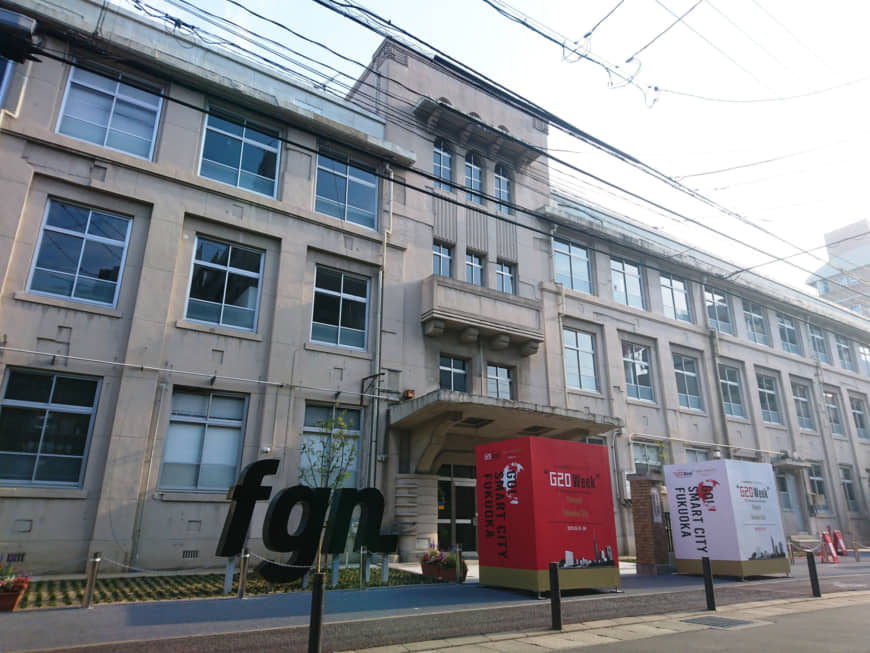
A next era, smart startup city
A more recent example of innovative planning is Fukuoka’s embracing of an entrepreneurial startup culture to promote the creation of new businesses and industry in the area. Mayor Soichiro Takashima has spearheaded the approach, emphasizing a “startup visa initiative” formally introduced in December 2015 that helps non-Japanese entrepreneurs to start their own firms in Fukuoka.
The national government has designated Fukuoka as a “Special Zone for Global Startups and Job Creation” enabling foreign talent to work in Japan with fewer bureaucratic hurdles and pay significantly lower corporate taxes, in some cases up to 8 percent lower than the norm.
Specifically, prospective startup visa applicants receive a waiver for a maximum of one year from standard business manager residential status visa requirements, allowing the time to “startup” and establish their businesses.
Standard requirements include having an office and hiring at least two full-time employees, or having an investment portfolio exceeding ¥5 million at the time of applying for the visa. Instead, startup visa applicants are required to submit a New Business Implementation Plan for review to the city of Fukuoka outlining how they can meet these requirements within a one year timeframe.
The Immigration Bureau will then evaluate the candidates based on the city of Fukuoka’s confirmation. Once the startup visa expires, a standard business manager visa must be acquired. Other financial assistance and subsidies offered through the city include screened loans for recently established entrepreneurs, as well as an annual step up subsidy, in which winners of a related business plan contest may be eligible for prizes of up to ¥1 million.
Those interested in the visa can learn more about it and other support services for entrepreneurs such as startup preparation, legal and tax consultation services, coworking spaces and networking and matchmaking between startups and potential employees at Startup Cafe Fukuoka City.
Located at the private-public startup accelerator Fukuoka Growth Next, which recently reopened on May 31 under new management after renovations, the cafe has long been a locus for Fukuoka’s startup community. From robotics to regenerative and telemedicine; and from next generation power storage technology to drone logistics development — eligible businesses that can help improve Fukuoka’s industrial and global competitiveness or expand local employment opportunities are welcome to apply.
One outlet where such innovative businesses can showcase their services or wares is the Fukuoka government’s proposed most livable smart city, “Fukuoka Smart East.” It is hoped the smart city will encourage the formation of new startups.
The smart city’s creation is an ambitious project that will see a former campus of Kyushu University in Hakozaki — approximately 5 kilometers from the Fukuoka city center and equidistant from the airport — transformed into a model city of the future.
The smart city project site measures about 50 hectares, an area that covers the distance from Tokyo’s Roppongi Hills to Toranomon Hills. Planning for Fukuoka Smart East is literally groundbreaking, as the city’s infrastructure, its facilities and technology are all to be developed together from the ground up.
G20 finance meeting
One of the many sideline forums held in conjunction with the G20 Summit taking place in Osaka on June 28 and 29, the G20 Finance Ministers and Central Bank Governors Meeting provides a roundtable for participants to discuss economic issues of international importance, as well as how to best coordinate stable and sustainable growth of the global economy. Under Japan’s presidency of the G20 Summit, Finance Minister Taro Aso is acting as the chair of the G20 Finance Ministers and Central Bank Governors Meeting.
Finance ministers of the G20 Summit attendee and guest countries, heads of the Central Bank and European Central Bank, and representatives of international organizations such as the International Monetary Fund and World Bank are all taking part in efforts to drive an economic and financial reform agenda.
The G20 Japan presidency identified three key priorities to be addressed at the Fukuoka meet. The first is risks and challenges to the global economy. The finance minister has said the “G20’s ultimate mission in noncrisis times is to monitor global economic risks and work to stem crises before they materialize.”
The proper surveillance of global economic risks; identifying global imbalances; and sweeping demographic changes with their related macroeconomic and policy implications all fall under this umbrella.
The second priority is action toward robust growth. Agenda items include quality infrastructure investment resilience against natural disasters; strengthening health financing for moving toward universal health coverage in developing countries, and ensuring the sustainability and transparency of low-income countries toward debt.
The final priority considers responses to structural changes stemming from innovation and globalization. International taxation, addressing financial market fragmentation, and a discussion of the opportunities and challenges inherent to financial innovation are all hot topics under discussion.



